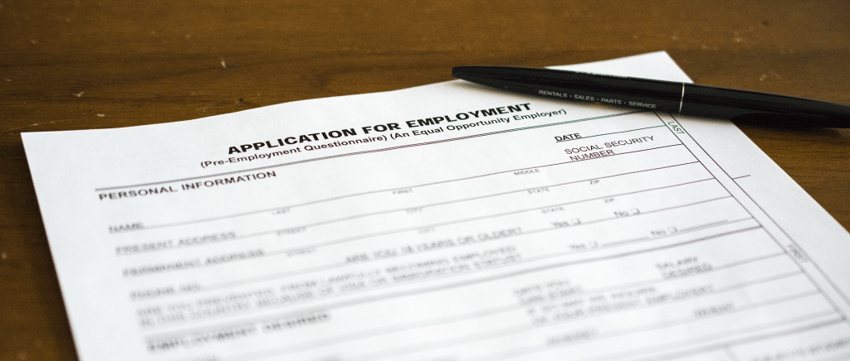
Ban-the-Box Laws, What You Need to Know
Nationwide, each state has slowly been adopting the ban-the-box law to help ex-offenders find work. Ban-the-box or the “fair-chance policy” is a policy that requires employers to remove the conviction history question from their job applications. In some areas, it dictates when an employer can conduct a background check. The goal is to get employers to view all job applications equally, and schedule interviews based on qualifications alone.
In an effort to avoid discrimination, and with the number of Americans with criminal records climbing higher every year, some states have decided to make it illegal to ask about a person’s criminal record before they’ve been interviewed. Each jurisdiction has their own law, so they may differ depending on where you live. The American Staffing Association Issue Paper released a chart of each state’s jurisdiction with a ban-the-box law and when an employer can ask for a criminal background check:
| Jurisdiction |
Criminal Question |
| California |
After a conditional offer of employment |
| Los Angeles, CA |
After a conditional offer of employment |
| San Francisco, CA |
The city ordinance states the inquiry can be made either after a live interview or, if no interview, after a conditional offer of employment. Because California law governs, inquiries in San Francisco must be after a conditional offer of employment. |
| Connecticut |
After the initial written application is submitted |
| Washington, DC |
After a conditional offer of employment |
| Hawaii |
After a conditional offer of employment |
| Illinois |
After the applicant has been deemed qualified for the position and notified that he or she has been selected for an interview (or, if no interview, after a conditional offer of employment) |
| Baltimore, MD |
After a conditional offer of employment |
| Montgomery Co., MD |
After conclusion of a first interview |
| Prince George’s Co., MD |
After conclusion of a first interview |
| Massachusetts |
After an interview |
| Minnesota |
After the applicant has been selected for an interview (or, if no interview, after a conditional offer) |
| Columbia, MO |
After a conditional offer of employment |
| Kansas City, MO |
After an applicant has been deemed qualified and, at least, interviewed |
| New Jersey |
After an interview |
| Buffalo, NY |
After an interview |
| New York, NY |
After a conditional offer of employment |
| Rochester, NY |
After an interview or after a conditional offer of employment |
| Oregon |
After an initial interview or after a conditional offer of employment |
| Portland, OR |
After a conditional offer of employment |
| Philadelphia, PA |
After a conditional offer of employment |
| Rhode Island |
After an interview |
| Austin, TX |
After a conditional offer of employment |
| Vermont |
During an interview or once the applicant has been deemed otherwise qualified for the position |
| Seattle, WA | After an initial screening of applications or resumes to eliminate unqualified applicants |
Each year new jurisdictions around the country find the benefit of ban-the-box and are starting to implement this law. Utah only recently jumped on the ban-the-box bandwagon. On May 9th, 2017, Utah implemented a new law that government jobs cannot ask about criminal history before an interview is conducted. If no interview is conducted, criminal history cannot be asked about until a conditional job offer is made. As of right now, this law only pertains to government jobs in Utah, with the exception of law enforcement, any jobs that deal with children, vulnerable adults or finances, the State Tax Commission and Department of Alcoholic Beverage Control. There are select other states that were not included in the chart above because they are similar to Utah, in that they have only implemented this law for government jobs so far.
The goal with Ban the Box is to help convicts find work after prison. The government hopes that this will help more people get an interview and allow employers to see the value of an applicant before discriminating against their past. It’s an effort to help ex-criminals rejoin society rather than re-offend and end up back in prison. They hope this can help people find a fresh start.


